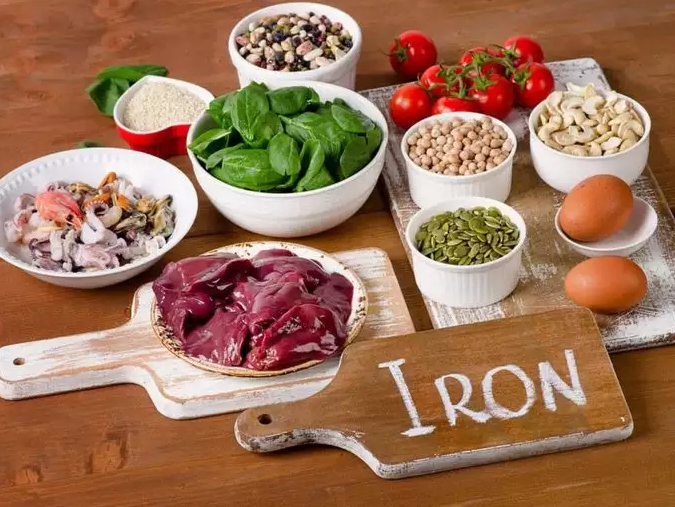One of the most common health concerns caused by malnutrition is iron deficiency, often known as sideropenia. Malnutrition is caused by a lack of essential nutrients (in this case reduced iron intake). Iron deficiency anemia develops if this ailment is not treated, and symptoms and indicators include fatigue, malaise, dizziness, hair loss, pallor, palpitations, headache, brittle nails, itching, and more.
The level of iron in the blood must be normalized in order to treat iron deficiency anemia. A proper diet, in addition to ready-made iron supplements, is critical for maintaining appropriate iron levels.
Therefore, find out which foods are rich in iron.
Spinach
Spinach is one of the best natural iron sources. This plant is high in iron, as well as vitamins A and E, calcium, fiber, and protein.
Although it is ideal to eat spinach raw, if you don’t like the taste, use it as a side dish in pies, vegetarian lasagna, omelets, and other dishes.
Lens
Lens is a good source of iron, and it’s also high in fiber, so it’ll keep you full for a long time after you eat it. Lentils also aid to decrease cholesterol and manage blood sugar levels.
It can be used in sandwiches and salads, or it can be made into a soup.
Pumpkin seeds
Pumpkin seeds are an excellent source of minerals for your body. They are high in manganese, magnesium, phosphorus, and zinc, in addition to iron. Pumpkin seeds improve immunity and thanks to the antioxidants they contain, protect the body from cancerous changes. Therefore, include them in your daily diet.
You can get them as a finished product or separate them from the pumpkin and bake them yourself.
Red meat
Iron, zinc, phosphorus, and B vitamins are abundant in red meat (beef, lamb, and pork). It’s recommended that you consume a piece of red meat three times a week to keep your iron levels in check.
Caution: Consuming red meat in excess can have negative health consequences, including the promotion of cardiovascular disease and some types of cancer.
Dark chocolate
Antioxidants, flavonoids, vitamins, and minerals abound in high-quality dark chocolate. It possesses anti-cancer and anti-inflammatory properties, as well as lowering the risk of cardiovascular disease. Manganese, magnesium, selenium, copper, and, of course, iron are all abundant in dark chocolate.Therefore, if you have an iron deficiency, consume a few cubes of dark chocolate 3-4 times a week.
Choose chocolate with as high a percentage of cocoa as possible (minimum 60-70%).
Tofu
Protein, iron, and calcium are all abundant in soy tofu. Tofu also contains vitamins B and K, thiamine, riboflavin, omega-3 fatty acids, magnesium, and selenium, and is low in cholesterol.
In addition to iron deficiency anemia, the minerals in this diet aid to prevent cardiovascular disease, breast cancer, diabetes, and osteoporosis.
Sesame
Sesame seeds are another iron-rich nutritious food. Sesame also contains a lot of zinc, copper, vitamin E, magnesium, and phosphorus.
This seed aids in the prevention of osteoporosis, the reduction of cholesterol, and the improvement of vascular health. As a result, use it in your daily menu as a salad or main course addition.




